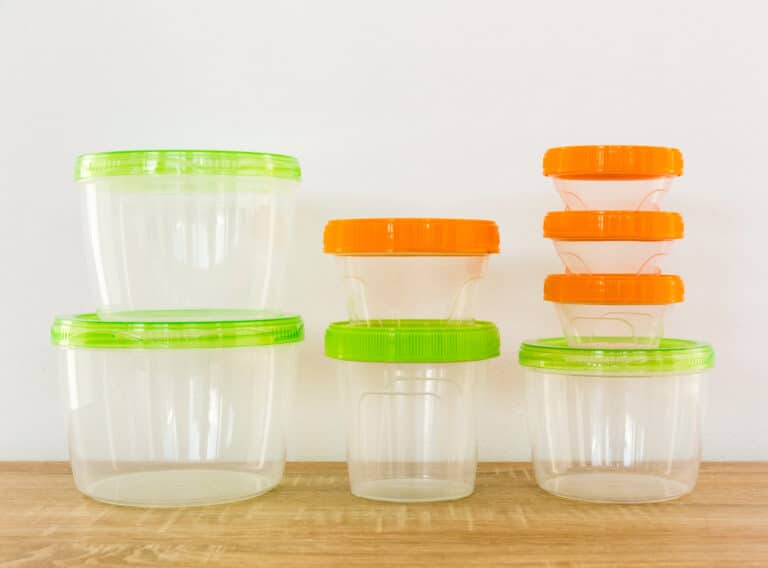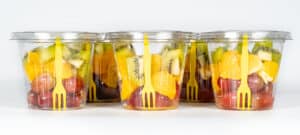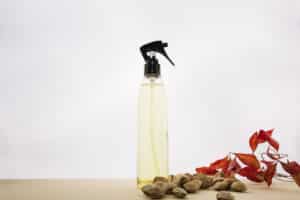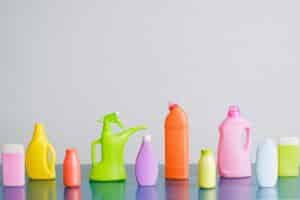When choosing plastic mason jars wholesale, there are several factors to consider. From the material and design to the size and price, finding suitable plastic mason jars for your needs can make a big difference. In this article, we will explore the key factors to consider when choosing plastic mason jars wholesale and provide you with tips to make an informed decision. Whether you’re a small business owner, a DIY enthusiast, or just someone who loves organizing, this guide is for you. So, let’s dive in and discover how to choose the perfect plastic mason jars wholesale.
Table of contents
Step 01 | Choosing the suitable material for plastic mason jars
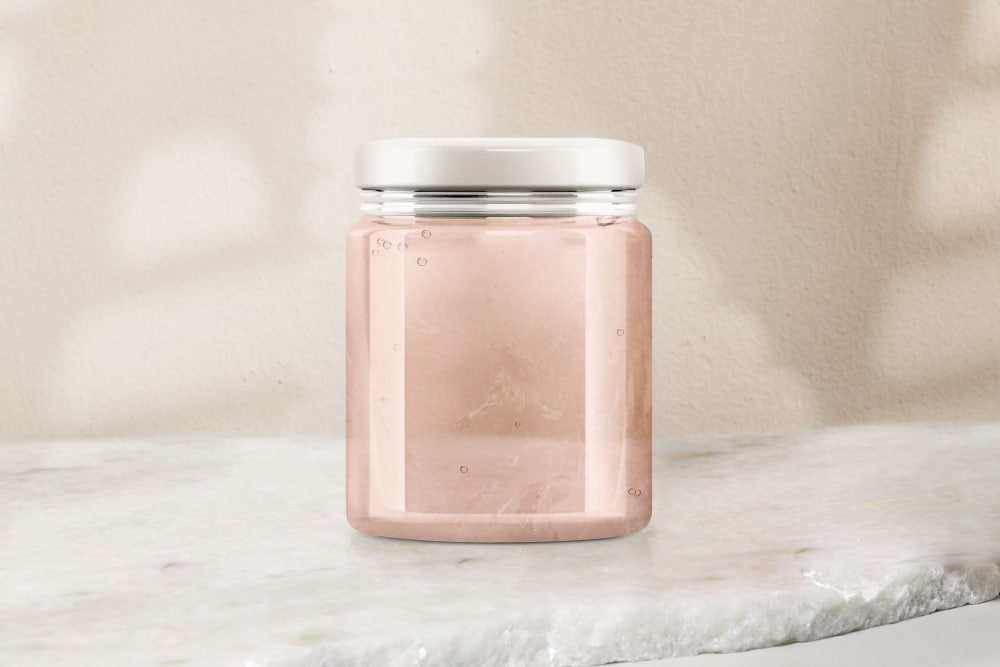
Choosing the right material for your custom plastic mason jars is crucial as it affects durability, transparency, and overall performance. Here are the common plastic choices you’ll encounter when shopping for wholesale plastic mason jars:
1. Polyethylene terephthalate (PET)
PET plastic is famous for mason jars because of its durability and clarity. It is lightweight and shatter-resistant, making it ideal for storing and showcasing various items. PET plastic is also recyclable, which adds to its eco-friendly appeal.
2. Polypropylene (PP)
PP plastic is known for its heat resistance and chemical stability. It is often used for plastic mason jars requiring microwaving or hot filling. PP plastic is sturdy and has good impact resistance, making it suitable for everyday use.
3. High-density polyethylene (HDPE)
HDPE plastic is famous for its strength, making it a reliable choice for heavy-duty mason jars. People use this plastic for storing liquids, powders, and granular products. HDPE plastic jars are resistant to moisture and chemicals, making them suitable for various applications.
4. Polystyrene (PS)
PS plastic is famous for disposable mason jars due to its affordability and clarity. It is lightweight and provides good impact resistance. However, it is essential to note that PS plastic is not recyclable.
When choosing the material for your mason jars, consider the specific requirements of your products and the intended use. Each material has advantages, so select the one that best suits your needs.
Step 02 | Choosing the suitable capacity
When choosing mason jars wholesale, another crucial factor to consider is the size or capacity. The right size depends on the intended use of the jars and the quantity of the items you plan to store. Here are some tips to help you choose the suitable capacity:
- Consider the volume of the items: determine the quantity of items you plan to store in the mason jars. Consider their space and choose a capacity that suits your needs.
- Think about storage and shelf space: if you have limited storage or shelf space, opt for smaller-sized mason jars. This will help you maximize your storage area and keep everything organized.
- Consider the weight: remember the weight of the items you will store. If you plan to keep heavy items, such as nuts or grains, choose mason jars with a larger capacity and a sturdy design to ensure they can hold the weight.
- Versatility: Think about the versatility of the mason jars. Will you use them to store food, crafts, or other items? If you plan to use them for multiple purposes, consider buying various sizes to cater to different needs.
Step 03 | Choosing the design of the plastic mason jars
In addition to material and size, the design and features of plastic mason jars also play a significant role in their usability. Here are some factors to consider:
- Lid Type: There are different plastic mason jars with lids, including screw-on, snap-on, or flip-top lids. Consider the lid type’s ease of use, seal-tightness, and convenience for your specific needs.
- Shape and opening: Mason jars come in various forms, including round, square, hexagonal, or plastic mason jars with handles. Consider the shape and opening size based on the items you plan to store. A wide opening can make it easier to access and pour the contents.
- Labeling and customization: If you need to label or customize the mason jars for branding or organizing purposes, choose pots with label-friendly surfaces or areas for customization. This will help you keep everything organized and visually appealing.
Step 04 | Considering the price and quality
When purchasing plastic mason jars wholesale, finding the right balance between price and quality is essential. Cheaper options might save you money upfront but may lack durability or have manufacturing defects. Here are some tips for finding the right balance:
- Research and compare prices: Look for reputable suppliers and compare prices for the same type of mason jars. Consider the quality of the mason jars and the supplier’s reputation before deciding.
- Read customer reviews: Check customer reviews and ratings before purchasing mason jars from a specific supplier. This can provide valuable insights into the actual quality and performance of the products you’re considering.
- Request samples: Many suppliers are willing to provide samples of their jars. Testing a model can help you assess the quality and durability firsthand.
- Inquire about warranties and return policies: Ask the supplier about warranties or return policies. A supplier that offers a guarantee on their product may be more confident in the quality of their plastic mason jars.
- Conduct a cost-benefit analysis: Weigh the upfront cost against the long-term benefits of quality mason jars. Consider factors like product integrity, customer satisfaction, and the overall image of your business.
Following the above step-by-step guide will help you to choose the suitable plastic mason jars for your business. But if you still do not know what to buy, here are some examples of popular uses of mason jars in different industries. By learning about them, you will understand how they became helpful as plastic containers.
Uses of plastic mason jars
When it comes to plastic mason jars, there are various options available in the market. These containers are designed to store and organize different types of items. Here are some common types of plastic containers with lids:
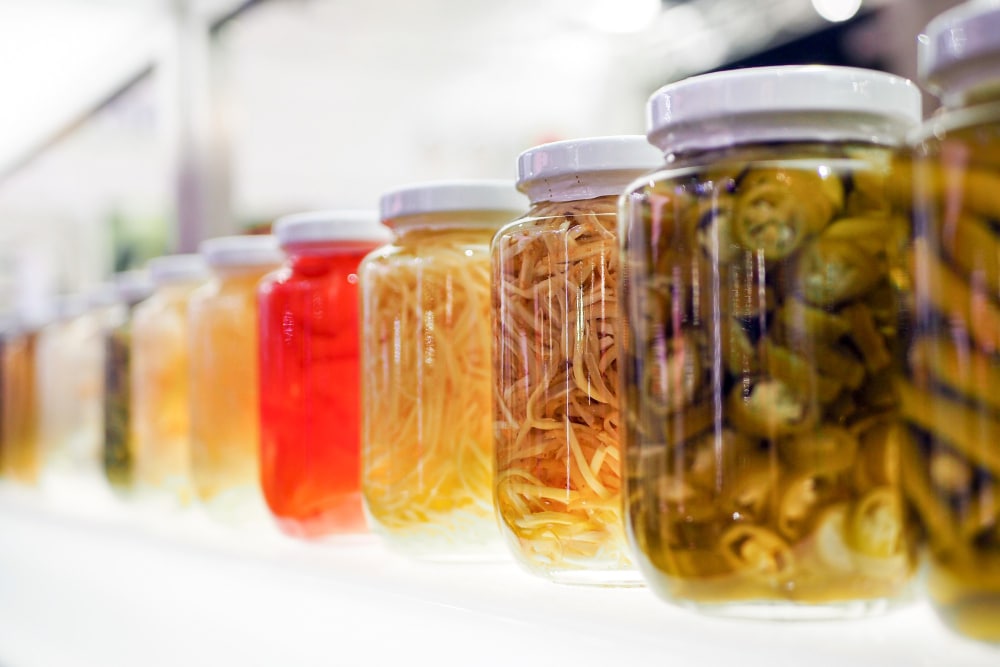
Food Storage Containers
Food storage containers are designed to keep food fresh and prevent contamination in the food and beverages industry. These containers come in various sizes and shapes, allowing you to store leftovers, snacks, or meal preps. Look for airtight plastic mason jars with lids to maintain the freshness of your food.
Medicine Bottles and Pill Organizers
Medicine bottles and pill organizers are essential for securely storing medications and supplements in the medical and prescription industry. These containers typically have child-resistant lids to ensure safety. Pill organizers come with compartments for daily or weekly pill storage, making it easier to manage medications.
Cosmetic and Beauty Containers
Cosmetic and beauty containers are designed to store creams, lotions, or makeup products in the cosmetic industry. Look for containers with tight-fitting lids to prevent leaks and maintain the integrity of your beauty products. These containers often come in travel-friendly sizes, allowing you to take your favorite products.
Whether you need to store food, organize household items, or sort your arts and crafts supplies, plastic mason jars with lids suit your needs perfectly. Consider the type of items you plan to store and choose the appropriate container to keep everything organized and easily accessible.
Conclusion
In conclusion, plastic mason jars are a versatile and practical solution for storage and organization. Whether you need to store food, organize household items, or sort your arts and crafts supplies, there is a plastic container that fits your specific needs. These containers come in various sizes, designs, and lid types, allowing you to choose the perfect one for your requirements.
Mason jars provide practical and functional storage solutions for various purposes. They offer protection, organization, and ease of use. So, plastic containers with lids are an excellent choice for storing food, medicine, or cosmetics.

